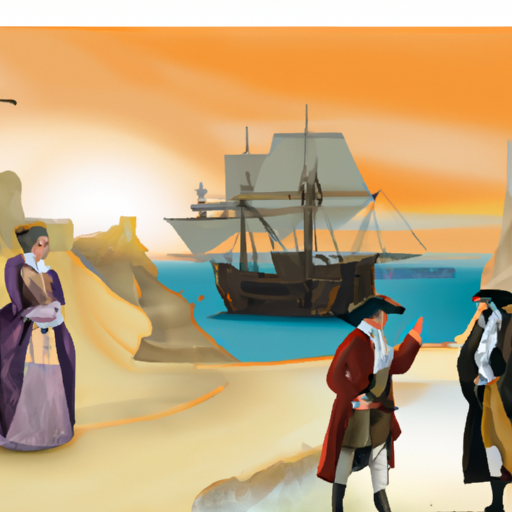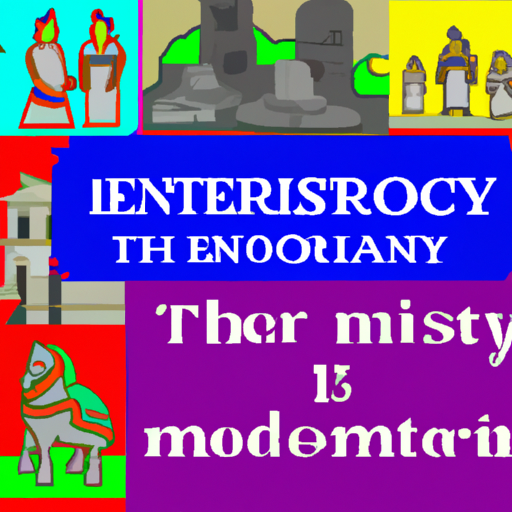A Historian of Logic: Examining the Minds of Those Who Think Logically
Introduction

One who holds to a belief in the power of logical thought is oft referred to as a rationalist. This term has been utilized across time and space by diverse thinkers and philosophers, to denote those who rely on sound reasoning when forming conclusions or opinions. The origin of this word can be traced back to 17th century France, where it was coined by the renowned mathematician and philosopher René Descartes. He believed that knowledge should be based on logical deduction instead of mere observation or faith. Rationalism has been an integral part of philosophical discourse since then, with many more modern-day philosophers such as Immanuel Kant and John Stuart Mill embracing its principles.
– The History of Logical Thinking
From the dawn of civilization, humans have been capable of utilizing basic reasoning and logical deduction to create laws and solve problems. Over time, the concept of logic became more intricate, culminating in Aristotle’s formalization of syllogisms in the 4th century BCE. This early form of logic was composed of three parts: a major premise, a minor premise, and a conclusion.
The Middle Ages saw further expansion upon Aristotle’s work by Islamic philosophers such as Al-Ghazali and Avicenna. These scholars developed scholasticism, an even more complex system of thought used to answer metaphysical questions and debate religious beliefs.
In the 17th century, modern logic began to take shape with Gottfried Leibniz and René Descartes introducing mathematical methods into their theories. This allowed for more stringent proof and analysis. Later on in the 19th century, George Boole introduced Boolean algebra while Augustus De Morgan developed De Morgan’s laws. These two mathematicians provided the basis for modern computer science by establishing a framework for how computers process information logically.
At present, logical thinking remains an indispensable part of numerous fields such as mathematics, philosophy, computer science, engineering, economics and psychology; it is essential for problem solving and decision making in these disciplines as well as everyday life situations.
– Famous Logicians Throughout History
known as the Turing machine.
From ancient Greek philosophers to modern-day computer scientists, many renowned figures have contributed to the field of logic over the centuries. Aristotle, Euclid, Abelard, Ockham, Scotus, Hobbes, Boole and Turing are just some of the most famous logicians in history who have made significant advances in the field. Their work has had a lasting impact on our understanding of how we think and reason logically.
– How Historical Events Have Shaped Logical Thinking
Throughout the ages, logical thinking has been shaped by events of the past. From the earliest civilizations to modern times, history has played a pivotal role in how we approach reasoning and thought. Ancient Greek philosophers such as Aristotle and Plato laid the groundwork for modern logic with their systems of deduction. The Renaissance period saw a resurgence in classical philosophy which helped to shape scientific methodologies based on inductive reasoning. Immanuel Kant and John Locke argued for empirical evidence and rational argument during the Enlightenment era.
The Industrial Revolution brought about new technologies that allowed people to collect and analyze data more efficiently than ever before. This led to more sophisticated theories on cause-and-effect relationships between events, making logical thinking an essential part of fields like economics, engineering, and medicine.
Mathematics and computer science have also had a major effect on logical thinking in the 20th century. Mathematical logic enabled researchers to prove theorems with greater accuracy while computers allowed scientists to process large amounts of data quickly using algorithms based on logical principles.
In conclusion, history has played an integral role in shaping our understanding of logic over time through various philosophical movements, technological advances, and mathematical breakthroughs. These methods have had a tremendous impact on our lives today—from providing us with dependable information about our environment to helping us make better decisions about our future.
– Exploring the Role of Logic in Ancient Civilizations
Throughout the ages, logic has been an integral part of civilization. From the earliest philosophers and scholars to modern times, logical reasoning has been used to explain the world around us, form theories, and make arguments. Ancient Greek philosopher Aristotle is credited with developing three laws of thought – identity, non-contradiction, and excluded middle – as well as a system of syllogisms for more complex arguments. Meanwhile in Ancient China, Confucius taught his students to use observation and experience rather than abstract concepts or divine intervention to understand their surroundings. His teachings had a lasting impact on Chinese philosophy and culture. Even today, logic remains an important part of our lives and by studying its history we can gain insight into our own beliefs as well as those of other cultures.
– Examining the Impact of Historical Philosophies on Logical Reasoning
For centuries, logical reasoning has been a cornerstone of intellectual exploration. From the ancient Greeks to today’s thinkers, the study of history has had a considerable effect on how we perceive and interpret our surroundings. Examining this influence can help us comprehend how our own logic is molded by past thoughts and convictions.
The early Greek philosopher Aristotle was one of the first to delve into the idea of logic in his writings. He supposed that all knowledge could be derived from using deductive reasoning, which entails deriving conclusions based on facts or evidence. This process was later taken up by Medieval scholars such as Thomas Aquinas, who used it to develop their own theories about natural laws and morality.
The Renaissance period also saw an application of logical reasoning but with a different approach than Aristotle’s deductive technique. Instead, they relied more heavily on inductive reasoning, which involves utilizing observations to form generalizations or hypotheses about the world around them. This method was popularized by Galileo Galilei and other scientists during this time period, who used it to make revolutionary discoveries about nature and the universe.
During the Enlightenment era, logical reasoning underwent another development with the introduction of empiricism, which emphasizes experience and observation when forming conclusions about reality. Philosophers like John Locke and David Hume argued that knowledge should be based on sensory evidence rather than pure logic or speculation. This perspective has become increasingly significant in modern times, as many people now rely heavily on empirical data when making decisions or forming opinions about any given topic.
Ultimately, studying the impact of historical philosophies on logical reasoning can provide valuable insight into how our own thought processes are affected by those who came before us. By understanding these influences we can strive to think more objectively and critically when coming to conclusions about any given issue.
conclusion

Perplexed musings on the concept of rational thought pervade the ages, its influence felt in a variety of domains – from philosophy to mathematics. A cornerstone of our comprehension of the universe, this logical approach has been essential in unlocking its mysteries.
Some questions with answers
Q1: What do you call a person who thinks logically?
A1: A rational thinker.
Q2: How does a rational thinker approach problems?
A2: A rational thinker approaches problems in a logical, systematic way, using facts and evidence to come to an objective conclusion.
Q3: Are there any famous historical figures who were known for their logical thinking?
A3: Yes, many famous historical figures have been known for their logical thinking, such as Aristotle, Plato, Descartes, and Kant.
Q4: How did these historical figures use their logical thinking?
A4: These historical figures used their logical thinking to develop theories about the world around them and to explain natural phenomena. They also used it to create systems of thought that would later become the foundation of modern science and philosophy.
Q5: What can we learn from the way these historical figures used logic?
A5: We can learn that by examining facts and evidence in a systematic way, we can come to conclusions about the world that are more likely to be accurate and reliable. Logic can help us make better decisions and understand complex concepts more clearly.




